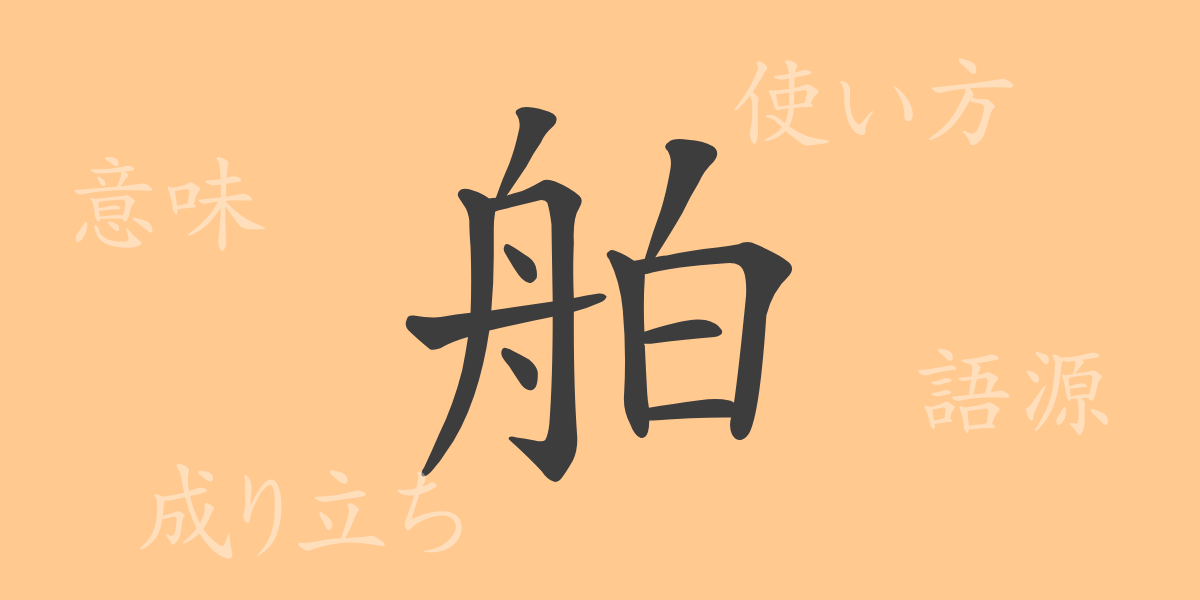In Japanese culture, each kanji character is imbued with history and profound meaning. The kanji “舶” (haku) might not be commonly seen in daily life, but it evokes images of ships crossing the sea and symbolizes connections with overseas lands and exchanges. In this article, we will explore the origins, meanings, uses, and idiomatic expressions related to “舶” to uncover its charm.
The Origin of 舶 (haku)
The kanji “舶” is composed of the “舟” (fune) radical, which represents a boat, and “白” (haku), which means “white” or “bright.” The “舟” signifies the boat itself, while “白” symbolizes the act of setting forth or brightness. Together, these elements illustrate the concept of a ship advancing far distances, illuminated by the brightness. In ancient China, “舶” specifically referred to large ships used for ocean voyages, highlighting its association with long-distance maritime travel.
Meaning and Usage of 舶 (haku)
The kanji “舶” is primarily used in terms related to ships. It specifically refers to ships coming from abroad, particularly those from the West, or matters related to foreign trade. For instance, “舶来品” (haku-rai-hin) refers to imported goods or items and cultures brought from overseas. This usage underscores the connection between the kanji and international exchange.
Pronunciation, Stroke Count, and Radical of 舶 (haku)
The kanji “舶” is often encountered in academic texts or specific professional fields, and it is recognized as a part of common use kanji in Japan.
- Reading: The on’yomi (音読み) or Chinese reading is “ハク” (haku). There is no kun’yomi (訓読み) or Japanese reading commonly associated with this kanji.
- Stroke count: It has a total of 11 strokes.
- Radical: The radical is “舟” (funehen), representing a boat or ship.
Idiomatic Expressions and Proverbs Using 舶 (haku)
There are several idioms and phrases that include the kanji “舶,” such as:
- 舶来品 (はくらいひん, haku-rai-hin): Imported goods, especially those from foreign countries.
- 客舶 (きゃくはく, kyaku-haku): A ship for carrying passengers or a guest ship.
- 商舶 (しょうはく, shou-haku): A commercial vessel, often referred to as a merchant ship.
These expressions are connected to themes of international exchange and trade, making them valuable for understanding global perspectives.
Summary of 舶 (haku)
Each kanji character carries rich meanings, and “舶” is no exception. Symbolizing ships that traverse the oceans, this character evokes the desire to explore the vast world and encounter different cultures. Understanding how “舶” has been used throughout Japan’s history, through idioms and expressions, helps us gain insight into the cultural significance embedded in language. Through words, we can appreciate and connect with the broader historical and cultural contexts they represent.

























